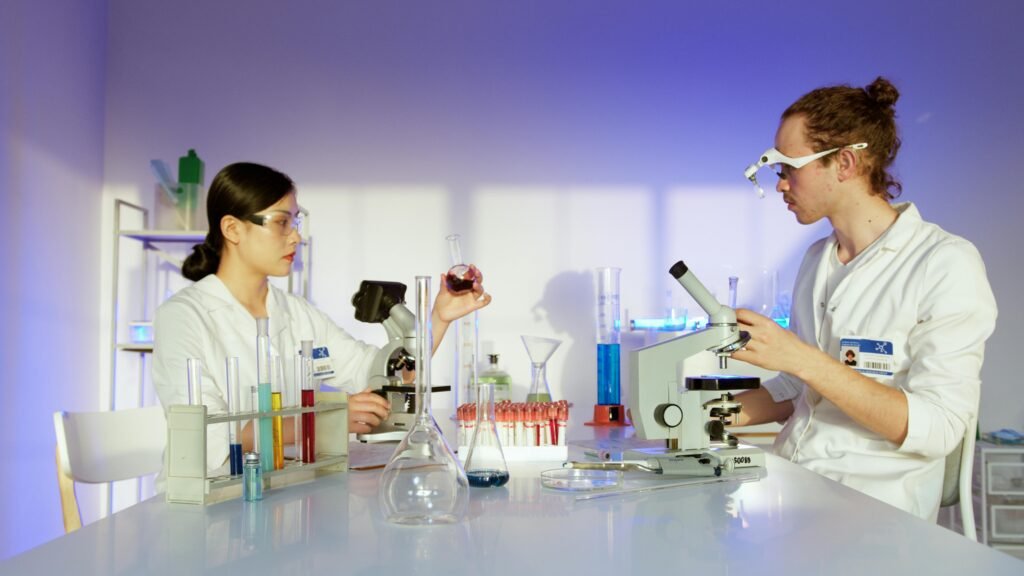Leiden University, The Netherlands

Electrochemical processes play a major role in the current energy transition. They make batteries, fuel cells and electrolysers work. Despite this importance, the properties of electrode – electrolyte interfaces at which these processes occur, are rather poorly understood at the molecular level. To address this issue, this project aims to combine atomic force microscopy (@University of Twente) with theory and modeling (@Leiden University).
While electrochemical atomic force microscopy (AFM) bares the promise to combine atomic scale imaging with force spectroscopy, the interpretation of such measurements remains tentative without detailed modeling. In the current project, Prof. Mugele’s PCF group at Twente and the Theoretical Electrochemistry group lead by Ass. Prof. Doblhoff-Dier at Leiden University team up to combine high resolution AFM experiments (PhD2 @ Twente) and atomistic modelling (PhD1 @ Leiden).
If you are interested in theory, computational modeling and electrochemical processes and bring the background as described below, please send your application via the “Apply now” button.
If interested in the experimental position at the University of Twente, please follow this link: https://utwentecareers.nl/en/vacancies/1974/phd-position-molecular-structure-of-electrode-electrolyte-interfaces-in-electrochemistry/
The Faculty of Science Leiden and Theoretical Electrochemistry group lead by Katharina Doblhoff-Dier are looking for a PhD candidate focusing on unravelling properties of the electrode – electrolyte interface via atomistic and mean-field simulations.
During the PhD project, you will develop simulations and simulation protocols that allow us to interpret the atomic force spectroscopy measurements. Additionally, you will provide fundamental insight into the hydration at the interface and its influence on simple chemical reaction. You will achieve this by applying a mixture of mean field modeling and atomistic modeling. Atomistic modeling will include force-field molecular dynamics, density functional theory (DFT) and DFT-based molecular dynamics, and machine learned potentials.
The project forms part of a large, Dutch consortium ANION (www.anion.nl and www.linkedin.com/company/anion-nl).
Work and profile
The theoretical electrochemistry group lead by Katharina Doblhoff-Dier offers a friendly and open working environment. Our group members are passionate about their research and each of them are an expert in their field, allowing new group members to quickly learn and become experts themselves. The close connection to the experimental electrochemistry group at Leiden University lead by Marc Koper is an additional benefit.
For the project described above, we are seeking an ambitious and enthusiastic PhD candidate showing strong independence in their work.
Key responsibilities are to
- Develop and conduct atomistic and mean-field simulations; analyze and interpret the results.
- Become an expert in your research field and the simulation techniques through literature studies, self-study, and interaction with the group
- Assist in developing research projects by open-mindedly developing ideas and posing research questions yourself.
- Assist in teaching activities; co-supervise BSc and MSc students.
- Actively participate in group meetings as well of one-on-one meetings.
- Proactively communicate and assist colleagues to contribute to the positive atmosphere in our group.
Selection criteria:
- You have or will shortly have a MSc degree in theoretical chemistry, physical chemistry, (theoretical) physics or closely related disciplines.
- Note that a focus on (experimental) biochemistry or organic chemistry provides insufficient background for this position.
- You have an excellent understanding of physical and quantum physical principles and methods with strong analytical skills and a problem-solving attitude.
- You have experience withatomistic simulations of solid state or interfacial systems
- orexperience with double layer theory
- orexperience in advanced molecular dynamics simulations including free energy methods and enhanced sampling
- or can convincingly motivate (e.g., through a solid course background or because you have basic experience on several of the topics) why you would be able to pick these methods up fast.
- You are creative, independent, persistent and open minded
- You like to contribute to the team by sharing and discussing your ideas with colleagues, you can communicate your research in written language and you are proficient in English (both written and spoken).
- Experience with electrochemical systems/problems is an advantage.
For more information, please contact Prof. Katharina Doblhoff-Dier (k.doblhoff-dier@lic.leidenuniv.nl)
For more information regarding the experimental position in Twente, please contact Prof. Frieder Mugele (f.mugele@utwente.nl).
Description of organisation and terms of employment
The position starts when a suitable candidate has been found. We offer a position for one year and upon satisfactory performance to be extended for three more years.You will be appointed in accordance with the Collective Labour Agreement for Dutch Universities. The salary ranges from € 2.872,- to € 3.670,- gross per month, depending on experience (pay scale P).
Leiden University offers an attractive benefits package with additional holiday (8%) and end-of-year bonuses (8.3 %), training and career development. Our individual choices model gives you some freedom to assemble your own set of terms and conditions. For international spouses we have set up a dual career programme. Candidates from outside the Netherlands may be eligible for a substantial tax break. For more information, see the website.
Do you have questions about this position? Please contact Dr. Katharina Doblhoff-Dier, k.doblhoff-dier@lic.leidenuniv.nl.
For more information about the recruitment process please contact Angelo Philippi, Management and Office Assistant, a.philippi@lic.leidenuniv.nl.
You can find more information about the faculty of Science at https://www.universiteitleiden.nl/en/science/about-faculty-of-science. For more information about working at Leiden university please visit https://www.universiteitleiden.nl/en/working-at.
Are you enthusiastic about this vacancy? We are looking forward to getting to know you. You can apply until [date] using the application button below. Please Attach your CV, including a list of completed academic courses, research software you are familiar with, and (if applicable) a list of publications. Please also attach a cover letter detailing your specific research interests, qualifications, and your motivation for applying to this position. Lastly, please include at least two references in the designated fields in the application portal.
Applications will be considered on a running basis, the vacancy will be closed once the position has been filled.
